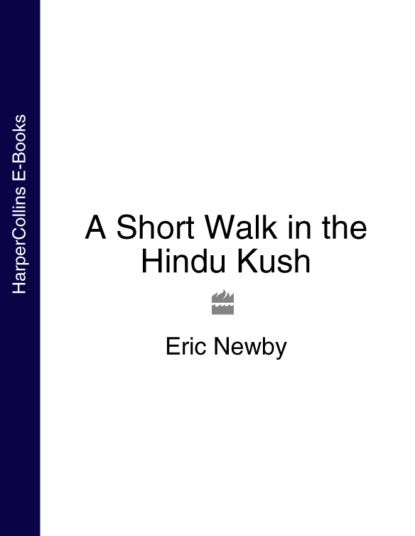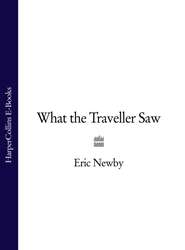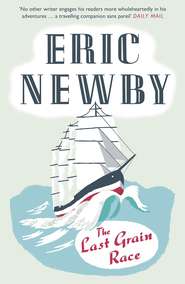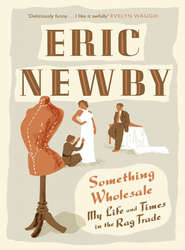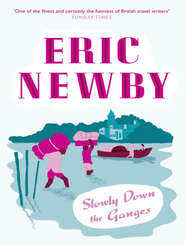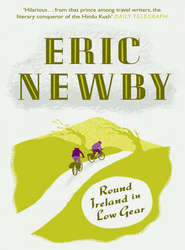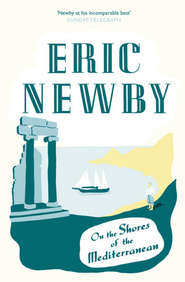По всем вопросам обращайтесь на: info@litportal.ru
(©) 2003-2024.
✖
A Short Walk in the Hindu Kush
Автор
Год написания книги
2018
Настройки чтения
Размер шрифта
Высота строк
Поля
‘Several beatings were given yesterday for the discouragement of false witnesses and their evidence is inadmissible,’ said the Prosecutor, but he was remote, immovable.
‘Malheureusement vous devez rester ici sept jours pour qu’arrive une réponse à notre telegramme,’ said the Interpreter in his repulsive French.
‘Monsieur le Procureur a envoyé une telegramme?’
‘Pas encore,’ replied the Interpreter, leering triumphantly. I had never seen him look happier.
We implored Hugh to send a telegram to Ankara. He was adamant but he did agree to send for Niki, the Armenian doctor. It was not easy to find an un-named Armenian M.O. in a garrison town but he arrived in an hour, by jeep, round and fat but to us a knight in armour. The Interpreter was banished and Niki began translating sentence by sentence, English to Turkish, Turkish to English. Hugh spoke of N.A.T.O. and there was a flicker of interest, of how the two countries had fought together on the same side in Korea, of the great qualities of the Turkish Nation, of the political capital that the Russians would make when the news became known, that such a situation would not happen in England. Finally, Hugh said he wanted to send a telegram. We knew what agony this decision cost him.
‘It is extremely difficult. There is no direct communication. We shall first have to send to Erzerum.’
‘Then send it to Erzerum.’
‘It will take three days. You still wish?’
‘Yes, I wish.’
Hugh wrote the telegram. It looked terrible on paper. I began to understand why he had been so reluctant to send it.
‘Detained Bayazid en route Tehran awaiting formulation of charge killing civilian stop Diplomatic visa applicable Iran only.’
Niki translated it into Turkish; holding the message, the Prosecutor left the room. After a few minutes he returned with a heavily moustached clerk in shirt-sleeves. For more than ten minutes he dictated with great fluency. It was a long document. When it was finished Niki read it aloud. It gave an account of the entire affair and expressed Hugh’s complete innocence.
The last stamp was affixed; the Prosecutor clapped his hands, coffee was brought in.
It all happened so quickly that it was difficult to believe that it was all over.
‘But what made him change his mind?’ It was an incredible volte-face.
‘The Public Prosecutor asks me to say,’ said Niki, ‘that it is because M. Carless was gentlemanly in this thing, because you were all gentlemanly,’ bowing to Wanda, ‘that he has decided not to proceed with it.’
CHAPTER SIX Airing in a Closed Carriage (#ulink_f371ec0b-ec83-5715-aa6f-1dad33e0da9e)
In Tehran Wanda left us to return to Europe.
On 30 June, eleven days from Istanbul, Hugh and I reached Meshed, the capital of the province of Khurasan, in north-east Persia, and drove through streets just dark to the British Consulate-General, abandoned since Mussadiq’s coup and the breaking off of diplomatic relations in 1953.
After a long wait at the garden gate we were admitted by an old, grey-bearded sepoy of the Hazarah Pioneers. He had a Mongolian face and was dressed in clean khaki drill with buttons polished. Here we were entertained kindly by the Hindu caretaker.
The place was a dream world behind high walls, like a property in the Deep South of the United States. Everywhere lush vegetation reached out long green arms to destroy what half a century of care had built up. The great bungalows with walls feet thick were collapsing room by room, the wire gauze fly nettings over the windows were torn and the five-year-old bath water stagnant in the bathrooms. In the living rooms were great Russian stoves, standing ceiling high, black and banded like cannon set in the walls, warming two rooms at once, needing whole forests of wood to keep them going.
The Consulate building itself was lost and forgotten; arcades of Corinthian columns supported an upper balcony, itself collapsing. The house was shaded by great trees, planted perhaps a century ago, now at their most magnificent. Behind barred windows were the big green safes with combination locks in the confidential registry. I asked Hugh how they got them there.
‘In the days of the Raj you could do anything.’
‘But they must weigh tons. There’s no railway.’
‘If Curzon had anything to do with it, they were probably dragged overland from India.’
On the wall in one of the offices we found a map of Central Asia. It was heavily marked in coloured pencil. One such annotation well inside Russian Territory, beyond a straggling river, on some sand dunes in the Kara-Kum desert read, ‘Captain X, July, ‘84’ and was followed by a cryptic question mark.
‘The Great Game,’ said Hugh. It was a sad moment for him, born nearly a century too late to participate in the struggle that had taken place between the two great powers in the no-man’s-land between the frontiers of Asiatic Russia and British India.
Apart from Hugh and myself, everyone inside the Consulate firmly believed that the British would return. In the morning when we met the old man from Khurasan who had been in the Guides Cavalry, the younger one who had been in a regiment of Punjabis and the old, old man who was the caretaker’s cook, I felt sad under their interrogation about my health and regiment. To them it was as though the Indian Army as they had known it still existed.
‘Apka misaj kaisa hai, Sahib?’
‘Bilkul tik hai.’
‘Apka paltan kya hai?’
I had acquired Urdu rapidly sixteen years before. It had vanished as quickly as it came. Soon I dried up completely and was left mouthing affirmatives. ‘Han, han.’
‘For God’s sake don’t keep on saying, “Han, han”. They’ll think you’re crazy.’
‘I’ve said everything I can remember. What do you want me to say. That we’re not coming back, ever?’
(#litres_trial_promo)
With all the various delights of Meshed to sample it was late when we set off. Driving in clouds of dust and darkness beyond the outer suburbs the self-starter began to smoke. Grovelling under the vehicle among the ants and young scorpions, fearful of losing our feet when the great American lorries roared past, we attained the feeling of comradeship that only comes in moments of adversity.
The starter motor was held in place by two inaccessible screws that must have been tightened by a giant. It was a masterpiece of British engineering. With the ants marching and counter-marching over me, I held a guttering candle while Hugh groped with the tinny spanner that was part of the manufacturers’ ‘tool-kit’.
‘What does the book say?’
It was difficult to read it with my nose jammed into the earth.
‘The starter is pre-packed with grease and requires no maintenance during the life of the vehicle.’
‘That’s the part about lubrication but how do you GET IT OFF?’
It was like trying to read a first folio in a crowded train. I knocked over the candle and for a time we were in complete darkness.
‘It says: “Loosen the retaining screws and slide it.”’
‘There must be a place in hell for the man who wrote that.’
‘Perhaps you have to take the engine out first.’
Late at night we returned unsuccessful to the city and in the Shāri Tehran, the Warren Street of Meshed, devoted to the motor business, hammered on the wooden doors of what until recently had been a caravanserai, until the night watchman came with stave and lantern and admitted us.
In the great court, surrounded by broken-down droshkies and the skeletons of German motor-buses, we spread our sleeping-bags on the oily ground beside our vehicle. For the first time since leaving Istanbul we had achieved Hugh’s ambition to sleep ‘under the stars’.
Early the next morning the work was put in hand at a workshop which backed on to the courtyard. It was the sort of place where engines are dismembered and never put together again. The walls of the shop were covered with the trophies of failure, which, together with the vast, inanimate skeletons outside, gave me the same curious feelings of fascination and horror that I still experience in that part of the Natural History Museum devoted to prehistoric monsters.
The proprietor Abdul, a broken-toothed demon of a man, conceived a violent passion for Hugh. We sat with him drinking coffee inside one of the skeletons while his assistant, a midget ten-year-old, set to work on the starter with a spanner as big as himself, shaming us by the ease with which he removed it.
‘Arrrh, CAHARLESS, soul of your father. You have ill-used your motor-car.’ He hit Hugh a violent blow of affection in the small of the back, just as he was drinking his coffee.





